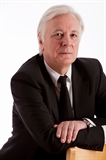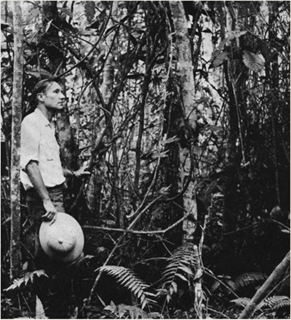Author Interview: Prof. Andrew J. Lees
Mentored by a Madman: The William Burroughs Experiment
– Interview with Carlo Colosimo, MD, Santa Maria University Hosptial, Terni, Italy; Moving Along Co-Editor
 Andrew J. Lees, MD, FRCP, FMedSci, is a Professor of Neurology at Reta Lila Weston Inst. of Neurological Studies in London, United Kingdom, as well as an MDS Honorary Member and Past-President (2005-2006). In anticipation of his recently published memoir, Mentored by a Madman: The William Burroughs Experiment, Prof. Lees was kind enough to answer a few questions from Carlo Colosimo related to his personal life and professional career.
Andrew J. Lees, MD, FRCP, FMedSci, is a Professor of Neurology at Reta Lila Weston Inst. of Neurological Studies in London, United Kingdom, as well as an MDS Honorary Member and Past-President (2005-2006). In anticipation of his recently published memoir, Mentored by a Madman: The William Burroughs Experiment, Prof. Lees was kind enough to answer a few questions from Carlo Colosimo related to his personal life and professional career.
Was your decision to study medicine an early or a late one?
I am the only doctor in my family, to my recollection. I never played ‘doctors and nurses’ as a small child and I certainly cannot recall having any great desires to heal or even relieve suffering as a teenager. I came to medicine through a love of botany and natural history and some 'subtle’ career advice from my parents.
Did you consider any alternative occupation?
I wanted to be an ethnobotanist following in the footsteps of Richard Spruce, the Yorkshire bryologist who spent 17 years in the Amazon and Andes collecting plants.
What is your main regret?
That I have been too fearful of authority and too compliant with the ridiculous bureaucracy and control systems that are stifling clinical research.
When you started studying Parkinson’s disease, would you have predicted a cure by the year 2016?
I decided to go into neurology after having the chance to use L-DOPA in 1969 shortly after it had become available for the first time in the United Kingdom. The results were almost miraculous and almost overnight I became a ‘Molecule Man’. The optimism was so great at that time that I shared the belief that cures for all the neurodegenerative disorders would be found within 10 years.
 Why are you so passionate about football (soccer)?
Why are you so passionate about football (soccer)?
My father was a good football player and when he was at Manchester University had trials with Manchester City. He took me to watch Liverpool as a young child and instilled in me a love for the glory game. Ray Kennedy the Arsenal, Liverpool and England football player whose biography I wrote instilled in me an early interest in the prodromal phase of Parkinson’s disease. Football clubs and universities have a great deal of similarity in the way they run and I have always tried to emulate the way Bill Shankly, the legendary manager at Liverpool FC in the 1960s, ran the club.
You have been travelling extensively around the world, but with a particular predilection towards Brazil: Can you explain why?
My interest in Brazil began as a young child when my father used to take me to Liverpool at weekends. One day a Booth Line steamer arrived in Brunswick docks from Manaus and a sailor called Barny Lafferty came on shore carrying three macaws that he told my father he planned to sell in a public house close to the river. After that, I built up a fantasia in my bedroom of an exquisitely beautiful, larger-than-life place beyond the distant horizon full of marvel and covered in beautiful forests.
Which are your current main interests, including neurology and other fields?
I remain very interested in the uniqueness of patients' stories. I have just written a book called Mentored by a Madman; The William Burroughs Experiment, where I emphasize the importance of the altamirage phenomenon in medical research and my Faustian bargain drawn up with ‘The Pope of Dope’ as a medical student which allowed me to complete my medical studies provided I continued to listen to what he had to say.
Mentored by a Madman; The William Burroughs Experiment can be purchased directly through Notting Hill Editions.






